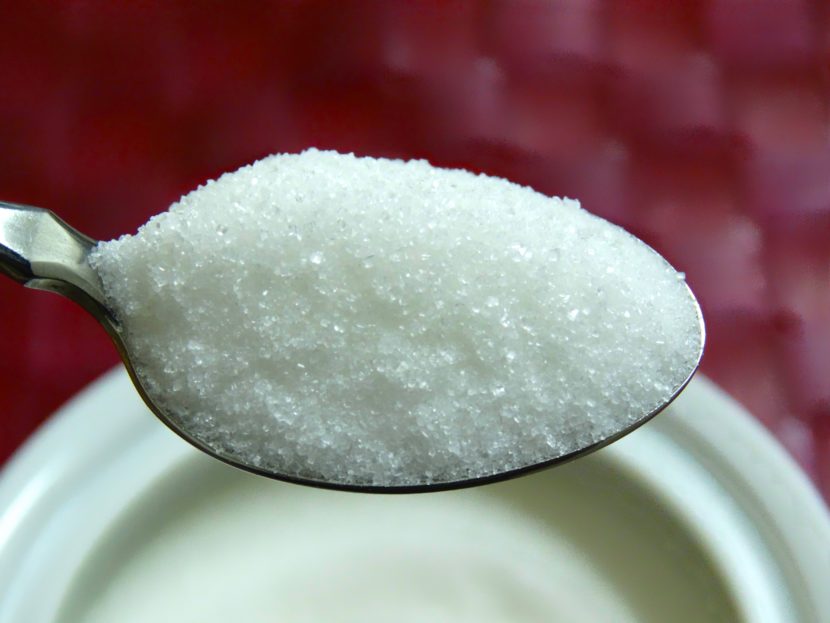Artificial sweeteners and what you need to know!
There are thousands of foods and supplements that use artificial sweeteners now. They are in your protein, your preworkout, BCAAs and many other food products. The main concern is how safe these are and what side effects they may have on the body. Many people who go on a diet try to save themselves from eating more calories by switching to diet drinks or adding low calorie sweetener. I personally use low calorie powders or add artificial sweeteners such as stevia to my oatmeal and other foods to add flavor without the excess carbs. Aspartame, saccharin, sucralose, acesulfame K, neotame, stevia and tagatose are all sweeteners that you will see in products today.
Aspartame has been heavily discussed and many people are determined to avoid it. Aspartame is 200 times sweeter than normal sugar and studies have suggested some benefits from consuming it. Animal studies showed that it may have possible benefits such as anti-inflammatory and analgesic properties. However studies have also shown aspartame might also negatively influence the body. In 2005 research was done by the Ramazzini Foundation in Italy. They concluded that aspartame had carcinogenic properties in rats and that even 20 mg/kg body weight of aspartame daily poses carcinogenic effects. However, in 2009 European Food Safety Authority looked over the Ramazzini Foundation study and reported that the tumors had developed by chance and not due to the exposure to aspartame. The topic is very controversial on whether the findings of carcinogenic properties are true or not. Overall the sweetener is generally considered safe to consume.
Saccharin is the first artificial sweetener used and was discovered over 100 years ago. In the past saccharin use was very controversial because of a study done in 1960. The study showed an increase of bladder cancer in rats. Although this finding was alarming in animals the International Agency for Research on Cancer changed its status of possibly cancerous to not cancerous to humans even with animal trials against it because of interspecies differences. While there is not a ban on it in the US other countries restrict its use and others have banned it completely.
Sucralose is used in many supplements I take and is 600 times sweeter than sugar. It is widely considered safe even with people diagnosed with diabetes. Over a three month period 128 people diagnosed with diabetes were monitored and the use of sucralose resulted in no adverse affect in control of blood sugar. One downside is that it does promote tooth decay unlike some other artificial sweeteners. These studies have been recently been contradicted by new studies on non-caloric artificial sweeteners which in human studies have show a change in the absorption of glucose in the bowel, and sometimes leading to increased glucose levels in the blood. In the recent studies it was thought that artificial sweeteners themselves didn’t cause glucose to rise but actually allowed for increased absorption of actual glucose in the bowel. It was also thought that artificial sweeteners decreased GLP-1 a signaling molecule which keeps glucose levels from getting too high.
Acesulfame K is great for many products because of its solubility and it remains stable under high temperatures. Just like sucralose it is viewed widely safe around the world.
Stevia is an artificial sugar I use all the time during meal prep. I put it in my oatmeal and on my sweet potatoes. It comes from the plant Stevia rebaudiana, and is found in most stores. Stevia has been studied and showed to be safe to consume with its acceptable daily intake of 4 mg/kg of body weight.
Tagatose is related to fructose chemically. In large doses this sweetener can cause diarrhea, nausea, and flatulence. Other than that it is generally recognized as safe by the FDA.
Neotame is rarely used and is 8000 times sweeter than sugar. It resembles aspartame however is more stable and is recognized as safe to use by the FDA.
At the end of the day it’s up to you to decide whether you want to include these in your diet or not. I use them all the time and don’t mind it if it’s in my food or supplements considering it saves me calories and helps me get a satisfied sugar craving without the net caloric gain. There are studies out there that have been conducted on rats showing an increase in food consumption and appetite however if you stick to a strict eating routine this shouldn’t be a problem for you.
Sources for artificial sweeteners:
Hampton T. Sugar substitutes linked to weight gain. JAMA. 2008;299:2137–8.
Artificial Sweeteners May Damage Diet Efforts
Tagatose, the new GRAS sweetener and health product.
Impact of artificial sweeteners on glycaemic control in healthy humans

